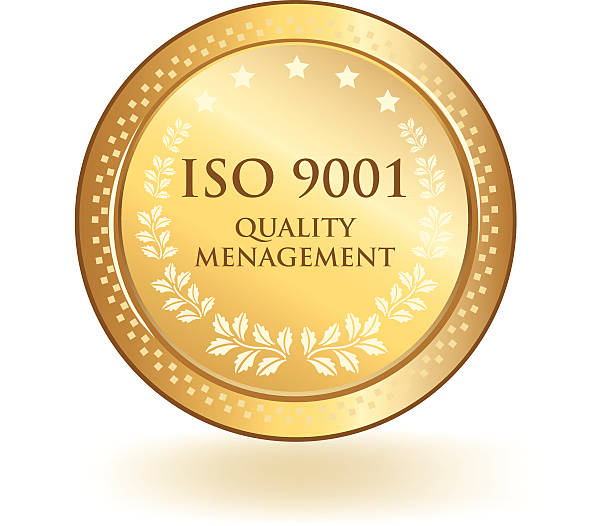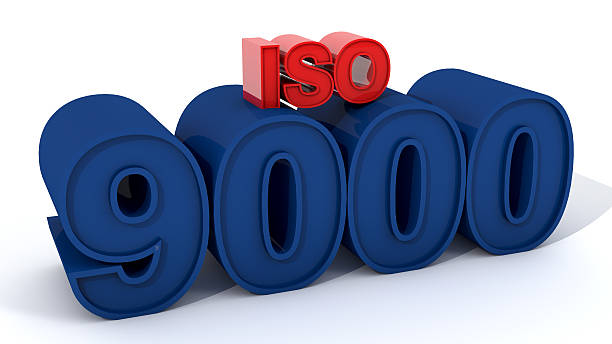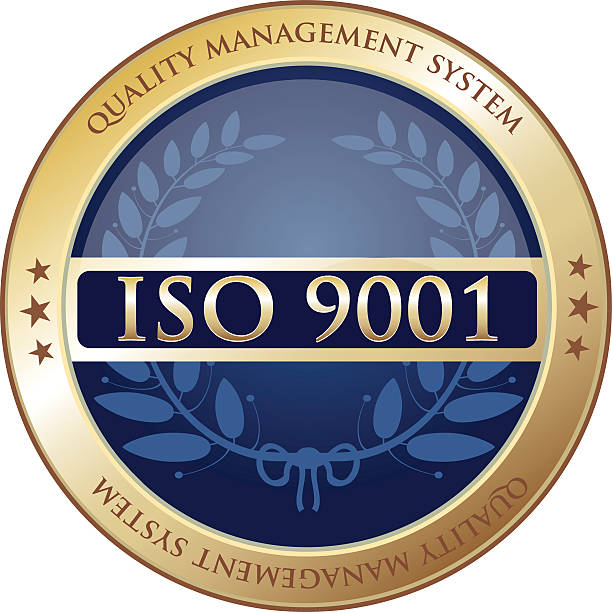The objective of iso 9000 family of quality management is to ensure that customers are supplied with products and services that meet their expectations.
The ISO 9000 family of quality management standards is a set of international standards, developed by the International Organization for Standardization (ISO) that provide a framework to help organizations improve their quality management systems.
ISO 9000 has been adopted by many companies around the world as a standard for internal quality assurance processes.
Introduction to the ISO Family of Management System Standards
The ISO family of standards was created in 1988 by the International Organization for Standardization (ISO) to establish international quality standards and facilitate worldwide trade.
The ISO is a global non-governmental body that develops voluntary international standards related to many areas of business and industry.
Many countries have chosen to adopt these internationally recognized standards as part of their nation’s government policy.
What is ISO 9001, When Was it Released and Where Does it Apply?

ISO 9001 is a standard for quality management systems. It was created in 1988 by the International Organization for Standardization (ISO).
It is used to ensure that organizations produce products of consistent quality and can be audited.
The first edition of ISO 9001 was released in 1988 and it started to be used in 1991.
The second edition was released in 1993 with minor changes from the first edition
The third edition of the standard, which was released in 1996, introduced significant changes from the previous editions. This led to a need for an update and the fourth edition of this standard was released on 22 October 2004 with significant changes from previous versions.
The latest version of ISO 9001 is the 5th Edition which came into effect on 1 January 2010.
Who Needs An ISO 9001 Certification?
An organization needs to implement an effective quality management system if they want to achieve their goals and deliver high-quality products or services.
- A well-run quality management system ensures that all the procedures employed by the company are efficient and effective.
- However, without any certification, a firm might find that its production process is not being followed.
Why Choose Us For ISO 9001?
We at DMS Software Solutions understand what it takes to get your product to market.
We develop enterprise-level solutions that offer our clients comprehensive software solutions that drive growth and customer satisfaction.
What Is The Objective of iso 9000 Family of Quality Management Is?

ISO 9000 is a family of standards that provides guidance on how to achieve quality management. The objective of ISO 9000 is to provide companies with a framework for implementing quality management and to help them avoid the pitfalls that can lead to non-compliance.
The objective of the ISO 9000 family of quality management is to provide assistance in developing, implementing, and maintaining a system for managing quality manual.
Quality management is a vast and complex process. The objective of the ISO 9000 family of quality management is to provide assistance in developing, implementing, and maintaining a system for managing quality.
This family of standards provides guidance for developing products and services which meet customer requirements as well as for identifying, reducing, or eliminating sources of variation that may compromise product quality.
How do these Standards Help Companies Achieve Their Objectives?
ISO 9000 helps companies identify critical areas and develop strategies that will enable the company to be successful in achieving its long-term objectives.
A good material quality system ensures that suppliers deliver what they promise and that customers receive exactly what they want.
It also identifies ways to eliminate waste and minimize risk. An effective system should be capable of being continually improved upon through continuous review and monitoring to ensure that it meets all customer needs.
Why Does ISO 9000 Exist?
A number of voluntary bodies have produced standards aimed at quality management principles and quality control. These include:
• The American Society for Testing Materials (ASTM), which published “Standard Guide for the Design of Reliability Assurance and Test Procedures,” now known as “American National quality award Standard — Design of Reliability Assurances.” This was later revised to become ANSI/ASQC Z1.4-1993
• The British Standards Institute (BSI), which has published such standards as BS EN 9001 (Quality Management System)
• The Canadian Standards Association (CSA), which publishes its own national standards bodies, “Canadian Standard – Reliable Supply Chain Management — A Quality Management Systems Standard”
• The European Committee for Standardization (CEN); CEN 14079:2001 (for electrical equipment)
• The German VDI, Federal Statistical Office; DIN 50001 (for statistical information systems)
• The Japanese Ministry of Health, Labour and Welfare; MHLW 5048-2 (for medical devices)
• The International Organization for Standardization (ISO). For example, ISO 9006 specifies procedures for the development of testing methods. ISO 9000 establishes guidelines for establishing, operating, and maintaining efficient and productive standards for quality management system.
There are many similarities between the ISO 9000 family of standards and other quality management principles and quality control standards, including:
• Objectives related to improving manufacturing processes and delivering a high level of service to clients
• Recognition that the cost of poor quality is often higher than the cost of achieving better quality
• Requirements for planning, executing, controlling, and evaluating activities involving people and processes
• Use of a variety of tools and techniques
• Methods for measuring customer satisfaction
The History of ISO Standards & Its Impact on the Market Industry

ISO 9000 is a family of quality management standards that have been developed by the International Organization for Standardization (ISO) since 1986.
The objective of ISO 9000 family of quality management is standards is to provide a framework for organizations to improve their performance, reduce any associated risks, and achieve continuous improvement in quality.
ISO 9000 is the world’s most widely used standard for quality management. It has been implemented in over 150 countries, and more than 100 million products are certified using it each year.
The standard ensures that companies adhere to quality control policies and procedures, which ensure that products are delivered on time, on budget, and meet customer expectations.
Who Should Manufacturers Consider As Implementing Partners Structure?
Manufacturing organizations typically use various consultants, advisors, and specialists to advise them on their quality programs and help them obtain special knowledge.
However, there is no substitute for having someone who understands the complete process from start to finish work with you. That person is your implementation partner.
An implementing partner can advise and manage your program according to whatever stage of maturity your organization might be in.
An implementing partner can provide additional expertise in areas such as IT, communication, training, change management, and business unit support.
We know how to implement an effective decisions ISO 9000 Program because we’ve done it before.
We have experience working with manufacturers from small firms to global corporations that range from 3,000 to over 25,000 employees.
Through our ISO 9000 Consultancy team at ISO Business Consulting Services, Inc., we have helped hundreds of companies successfully navigate the complexities of ISO 9000 certification.
We work closely with you to understand your company’s current quality environment and what steps you want to take toward attaining ISO 9000 certification.
Together, we design a plan to meet your needs by focusing on the following objectives:
Identify key requirements from both the ISO 9000 compliance and improvement aspects of your business
- Determine the scope of your Quality program plan
- Plan and document any necessary changes
- Develop strategies for continuous improvement
- Obtain the technical, administrative, and legal prerequisites for the certification
- Provide ongoing advice and support through all phases of the implementation process to assure your success
When you choose ISO Business Consulting Services, Inc., you get access to industry experts who can guide your ISO 9000 Implementation project efficiently, safely, and profitably.
Our firm has provided consulting services to businesses throughout North America for more than 10 years.
In addition, one of our senior management partners was instrumental in developing ISO 9001 as well as ISO 14000.
Today, he serves as vice president of the American National Standards Institute (ANSI) and chairperson of the ANSI ISO/IEC 17021:1998 committee for standard setting.
He also leads the ANSI-ASQC team responsible for preparing ASQ Credentialed bodies’ recommendations for ISO 9000.
Why Choose ISO 9000 Certification?

ISO 9000 offers a comprehensive set of standards that is easy to implement.
It enables manufacturers to concentrate on achieving their goals while ensuring that they make improvements that will bring real value to their customers.
By using ISO 9000 as a strategy for improving quality objective, a manufacturer gains many Certification benefits of iso including lower costs, greater productivity, improved service, higher sales volumes, better reputation, increased market share, etc.
As an added benefit, ISO 9000 is internationally recognized as a leading standard in its field which gives a manufacturer a Competitive edge in international markets.
Why Would You Want To Be Part Of The ISO 9000 Family Of Quality Management?
Being part of the ISO 9000 family means becoming an integral participant in the worldwide quality movement, which is changing the face of manufacturing today.
It brings about significant cost savings, reduced product defects, Skill enhancement customer satisfaction levels, brand recognition, and positive influence on the bottom line.
Manufacturers realize these benefits of iso when they are able to ensure that products or services delivered to customers meet specific specifications and expectations.
It provides them with the quality assurance standards that customers receive goods or services that are safe, accurate, reliable, timely, and consistent. In short, it gives them control of quality.
Who Does ISO 9001 Apply To?
The ISO 9001 standard is a quality management system that is used to ensure that products and services are of high quality. It was created by the International Organization for Standardization (ISO).
The ISO 9001 standard applies to the following types of organizations:
- – manufacturing companies
- – service providers
- – software development companies
- – research and development organizations
- – government organizations
ISO 9001:2008 is specifically designed to help you improve quality, increase efficiency and reduce costs.
If you currently have an ISO 9000 certification but no training quality program plan, we can help you develop one.
We can work with you to create a customized quality management plan that meets your unique regulatory requirements.
We’ve been providing quality consulting services to clients in both the public and private sectors since 1998.
We offer a wide range of services such as
| ‣ ISO 9000 consultancy services |
| ‣ ISO 7010 Consultancy services |
| ‣ ISO 13485 consultancy services |
| ‣ ISO 14051 consultancy services |
| ‣ ISO 15378 consultancy services |
| ‣ ISO 16355 consultancy services |
| ‣ ISO 17025 consultancy services |
| ‣ ISO 18015 consultancy services |
| ‣ ISO 20000 consultancy services |
| ‣ ISO 27002 consultancy services |
What Makes Us Different From Other ISO 9000 Companies?
We offer a unique approach to achieving ISO 9000 certification. Our firm is committed to providing guidance and assistance to you so that you may succeed in implementing this important strategic initiative.
One of the ways in which we do this is by providing you with a clear understanding as to why ISO 9000 needs to be implemented.
We don’t try to hide anything from you because we know how beneficial it is to have confidence in what you are doing.
Additionally, we work closely with you during every stage of the ISO certification process to help you effectively manage your resources, achieve a company competitive advantage, and reach your objectives.
To learn more about how we are different from other ISO 9000 companies, please read below:
100% Satisfaction Guarantee – If at any time before or after the completion of your ISO 9000 certification project,
you are not completely satisfied, simply contact us within 30 days of purchase and we will refund 100% of your money back. No questions asked!
① Cost-Effective Solution
- We believe our clients deserve the best solution available to them within their budget. Therefore, our fee structure is very straightforward.
② Quality First Approach
- We do not just focus on certifying your organization; rather, we take an integrated view of all aspects of your business including management systems, processes, procedures, and policies.
- This helps us provide a detailed assessment and report of your current situation. Furthermore, we identify areas where Continual improvement can be made which allows us to recommend corrective actions.
- Lastly, we establish realistic expectations regarding your ultimate goal. We do not use unrealistic targets.
③ Experienced Team
- With over 20 years of experience in managing ISO 9001:2008 projects, our expert consultants possess extensive knowledge in helping organizations throughout North America achieve successful ISO 9001:2008 certification.
④ ISO 9000 Family of Standard
- It provides a comprehensive set of rules designed specifically to meet the requirements of industrial environments.
- It is intended to guide organizations as they develop quality management systems.
- These standards were developed over many years and cover a wide range of areas including organizational structure and personnel matters, product development, manufacturing operations, customer relations, and financial reporting.
In order to qualify for ISO 9000 certification, an organization must follow these guidelines.
Our Firm’s ISO 9000 Certification Program
We understand that there is much confusion regarding the ISO 9000 certification quality improvement program.
That is why we strive to make sure that you clearly understand the differences between ISO 9000 and ISO 14000.
Simply put, ISO 9000 addresses safety aspects while ISO 14000 covers environmental issues. To help clarify this distinction, many organizations have qualified with both of these certification programs.
However, this does not mean that one is more important than the other. Rather, it means that companies may qualify with either program depending on how they want to address different environmental and safety issues.
For Example: if your company manufactures products in China, then ISO 9000 might ensure compliance with Chinese laws and regulations whereas ISO 14001 would allow your firm to demonstrate its commitment to reduce pollution from manufacturing activities.
What Does Your Company Need?
It is easy to get started but once you begin working towards your objectives, things can become complicated.
Our experienced consultants can help you decide what needs to be done within your specific industry.
We can help you define your goals and determine whether or not you need external audit management to help create and implement a plan.
Once we know exactly what you are trying to accomplish, we will work together to see how ISO 9000/14000 can assist you.
Here is a list of questions you should consider before making a decision:
| ① Are you currently operating under an ISO 9001:2008 or similar certification Quality Improvement program? If yes, when was your last review? If no, why not? |
| ② Do you have documentation showing your success at previous reviews? |
| ③ How much time do you expect to invest in obtaining ISO 9000 certification? (If not now, when?) |
| ④ What type of verification do you intend to receive prior to certification? |
| ⑤ Have you previously certified any employees under any of the other certifications? If so, which one(s)? |
| ⑥ Will your business benefit from being included among “certified” companies? Explain. |
| ⑦ How will ISO 9000 affect my day-to-day operations? |
| ⑧ Who will manage the process? |
| ⑨ Can you afford to pay us to help certify your operations? |
| ⑩ In some cases, we offer free consultations where you can use the information gathered during the review to help prepare for and obtain a certification. |
The consultation includes discussing your current version status, what you are trying to achieve, potential problems, existing and future processes and procedures, and more…
ISO 9000 Standardization and its Impact on Regulatory Authorities and Businesses around the World

‣ ISO 9000 is a standardization and certification program that was created by the International Standards Organization in 1988.
‣ ISO 9000 Standardization is a worldwide recognized quality management system that has been implemented in more than 100 countries around the world.
‣ ISO 9000 Standardization is an important part of a company’s quality management system. It helps organizations to meet their customers’ needs and increase their customer satisfaction rates.
‣ This can prove to be very beneficial for companies, as it increases their market demand share and profitability.
‣ The objective of ISO 9000 Family of Quality Management is Systems is to create an environment where customers are satisfied with the quality products or services they receive from a company,
‣ Which ultimately leads to customer retention, increased customer loyalty, and increased profitability for the company.
ISO 9000 Standardized Companies have shown improved overall organizational performance including better financial results and higher employee morale.
‣ Companies that operate under ISO 9000 Standardization perform better in terms of quality control, employee training, product development, customer service, and productivity.
‣ Also, these companies usually have fewer complaints against them because they comply with all the rules and regulations set forth by ISO.
‣ These standards are also helpful for foreign firms who seek to enter the U.S. economy and who want to establish themselves here.
‣ The standards ensure a minimum level of quality throughout their production process.
‣ As such, they make compliance easier for American companies wishing to export products to overseas markets.
‣ This allows importers to easily find supplier relationships that comply with international quality standards.
Since most of the world accepts the ISO 9001 certification when it comes to quality management systems, it makes sense for U.S. businesses looking to expand abroad.
Which Type of Audits Will Help You Achieve ISO Compliance Benefits of iso certification?

A comprehensive audit involves evaluating each process within a company and establishing goals for Continual improvement.
It evaluates documentation, records, equipment, personnel, facilities, and policies.
Audit Process iso Audits provide valuable feedback on how well the organization complies with ISO 9000 Standard.
Internal audit expertise is performed when a company suspects that its business processes practices may not be in compliance with the requirements of ISO 9000.
Internal Circular Audit focuses on the operations of the company itself and does not consider external factors.
It is usually carried out by staff members already associated with the company, although sometimes it is outsourced to consultants.
External audits focus primarily on the outside environment and the relationship between the company and its customers.
Some external audits also look at the environment surrounding the manufacturing operation.
Management Self-Audit means that management performs a review of its own procedures and controls to identify strengths and weaknesses.
They are designed to help managers understand their responsibilities and recognize business opportunities for improvement activities.
An example of a management self-audit organization is a yearly performance evaluation.
- Most companies complete an initial assessment of their quality system once per year and then meet quarterly afterward to discuss progress and plan future improvements.
- All three types of auditing involve two phases: pre-audit preparation and post-audit verification.
- Preparation involves identifying potential problems and reviewing control charts and documentation to determine whether there is sufficient evidence to support the claim of nonconformance.
- Post-audit verification involves comparing the actual data collected against the results expected and determining if conditions for conformance exist.
- During a pre-audit phase, audit parties compile information about the organization under investigation (organization), the work being carried out (processes), and the manner in which the processes are managed (controls).
How to Achieve Certification:
Auditing is a process approach that helps you identify and address any risks in your business.
The type of auditing you choose will depend on the size, complexity, and nature of your business.
The first type of auditing is internal audits, which are typically performed by employees who have access to all areas of the company.
Internal audits can be done on an annual basis or as needed. The second type is external audits, which are typically performed by 3rd party audit who have been hired by the company to assess its operations and provide an independent opinion on its activities.
The third type is management self-audits, which are typically done by management members who are responsible for overseeing specific areas of the company’s operations.
These types of audits can be done either annually or as needed as they allow
- What is ISO 9001?
- Why is this important?
- What benefits do you see in having your company certified?
- Have you previously certified your staff?
- If yes, which one(s) did you choose, why, and what were the results?
- Do you plan to get certification?
- How will you achieve certification?
- Do you need any special type of auditors to achieve certification?
- 8Which approach would you take towards achieving certification?
- Are you planning to use the ISO 9000 family of standards as a foundation for other QMS?
- Why should we continue to improve our quality systems?
FAQ [frequiently Asked Question]
What is the ISO 9001 Standard?
The ISO 9001 Standard is a quality management system standards that were first published in 1987 by the International Organization for Standardization. It is a well-known quality management system and a worldwide consensus for organizations to adopt.
The objective of iso 9000 Family of Quality Management Is
The objective of iso 9000 Family of Quality Management is used to maintain the quality of any product or service. It is a standard developed by the International Organization for Standardization. It was created with an objective to provide manufacturers, operators, and consumers with a structured way to prevent defects and hazards, thus improving product safety and protecting human health & the environment.
What is an ISO 9000 Certification?
ISO 9000 is a quality management standard that defines the requirements for quality management systems.
ISO 9000 is a certification that helps organizations to improve their performance and maintain higher levels of quality. It provides a benchmark for measuring, assessing, and improving the quality of an organization’s products or services.
The ISO 9000 certification provides a way to measure the effectiveness of an organization’s Quality Management System (QMS) and its ability to deliver product or service excellence.
What is an ISO 9000 Certification?
An ISO 9000 certification is a classification of international standard which is used to measure the quality of processes, products or services. These are made possible through the use of management systems and quality control.
Does my organization need Certification to ISO 9001?
The ISO 9001 certification is a 3rd party audit process of an organization’s quality management systems, which are designed to ensure that the company’s quality processes meet specific standards. Organizations that wish to ship their products and services internationally must have the certification in order to comply with international regulations.
Related Term
- What is Information System | Characteristics of Information System
- Amazon Business Quiz – Amazon Business Extra Savings Quiz App-only Daily Contest
- Mi Lifestyle Login & Milifestyle Login Mobile App Features
- How To Build a Successful RCM Business Plan
- Nature And Significance of Management
- A Comprehensive Guide To The Best MBA In Sales And Marketing
- Features Of International Marketing
- 5 Key Facts You Need To Know About UniLink Marketing LLP
- What Is Service Marketing Triangle
- International Marketing Research
- How To Use Rural Marketing Strategies To Increase Your Business Growth
- Features Of International Marketing
- Functions of Marketing
- Scope of Marketing Research
- What do you understand by Surrogate Marketing
- Marketing Fundamentals
- 5 Ways to Use How Can Performance Planner Serve Your Business to Achieve Your…
- Nature And Significance of Management
- Marketing Intelligence and Planning
Conclusion of The objective of iso 9000 Family of Quality Management Is Skill Enhancement
The objective of the iso 9000 Family of Quality Management Is to provide quality products and services to future customers.
The ISO 9000 Family of Quality Management Is a set of standards and guidelines for quality management system standards. It is a family of standards that include ISO 9000, ISO 9001, and others.
ISO 9000 was developed by the International Organization for Standardisation to help organizations around the world establish quality management system standards.
It was created with an objective to provide manufacturers, operators, and consumers with a structured way to prevent defects and hazards, thus improving product safety and protecting human health & the environment.
It sets out requirements that must be met before organizations are allowed to call themselves competent to perform certain functions.
‣ I hope friends, through this article, I have given you information about The objective of iso 9000 Family of Quality Management Is, You must have got the information. So share your suggestions with us.
Like this information Or have Something to share!
















